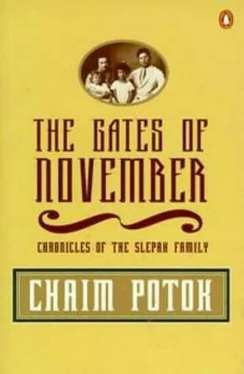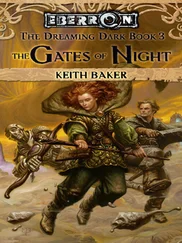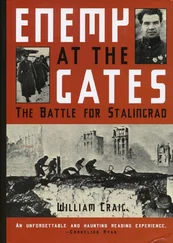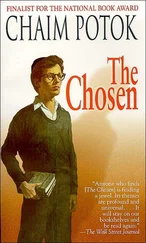Volodya applied again for an exit visa and was refused. The KGB tailed him constantly, arrested him several times for participating in demonstrations or for planning an action or to prevent trouble at official events like an international festival or a congress. Each time they held him for one day and sent him home.
In March 1987 a number of members of Congress met with Gorbachev in the Kremlin. One of the congressmen, James Scheuer, asked for the release of the Slepaks. Gorbachev replied, “Slepak will never leave the Soviet Union. Let’s not discuss his case.” Congressman Scheuer informed Masha and Voldya about the conversation.
One month later, in April, Masha and Volodya went on a seventeen-day hunger strike to commemorate their seventeen years of refusal. One day for each year, no food, only tap or mineral water, the strike announced in advance to the foreign press. They appeared in front of the Moscow “White House,” the parliament building, wearing placards that read LET US GO TO OUR CHILDREN AND GRANDCHILDREN. Many refuseniks and KGB agents watched in silence. On the fourth day they were arrested by the KGB. They thought they might be detained for ten to fifteen days; it would have been Volodya’s sixteenth such arrest in thirteen years. Instead they were brought back to their apartment and warned not to demonstrate again. Masha ended her strike that day; her health would not permit her to continue. Volodya kept at it through the seventeenth day. When he returned to his job after the strike, he learned that he had been fired. He never worked again in the Soviet Union.
That April about fifty refuseniks received invitations to a Passover Seder to be held in the Moscow residence of the American ambassador to the Soviet Union. The arrangements had been scrupulously attended to by several American Jewish women led by Sara Inick, wife of the American cultural attaché. The matzah and wine were flown in from Israel. In a large ballroom stood a dozen tables, all meticulously arranged for Passover. At each table sat a number of Americans: diplomats, press people. Ambassador Arthur Hartman and his wife greeted each person who entered. When everyone had arrived, the ambassador and his wife came over to Masha and Volodya, who had only the day before ended his hunger strike. They sat together at the same table. The ambassador put on a skullcap, and the Seder began. The refuseniks took turns reading from the Haggadah.
In the middle of the reading, George Shultz, the American secretary of state, entered the hall wearing a skullcap. He went slowly from one table of refuseniks to another, shaking hands, exchanging words, handing each person a book or memento. He recognized all the refuseniks, knew them by name, seemed awed and reverential in their presence. These activists-their names and photographs by now mythic symbols of defiance against tyranny, displayed everywhere, on placards, in books, schools, at demonstrations-were men and women who had for years defied, paid a terrible price, and were continuing to defy, a pitiless empire. Alexander Lerner was there that evening. Masha and Volodya Slepak. Viktor Brailovsky. Nahum Meiman. Iosif Begun. And many others. When George Shultz approached Masha and Volodya, he shook their hands and said he had a gift for them. His assistant handed him a photograph, which he gave to Masha and Volodya: a picture of Sanya and Leonid and the grandchildren taken at the time of the two brothers’ hunger strike in front of the Capitol building in Washington, D.C., to commemorate their parents’ seventeenth year in refusal. Shultz then briefly addressed the refuseniks. He said he and the American administration would never cease fighting for the freedom of Soviet Jewry. Then he introduced the new American ambassador; Ambassador Hartman was soon to retire. The reading of the Haggadah continued. At the conclusion of the Seder every family was presented with a box of Israeli matzos and every woman there received a red rose. Then all but a half dozen guests left.
In another room of the embassy, the half dozen guests who had remained, Volodya and Masha among them, spoke at some length with Richard Schifter, George Shultz’s aide in human rights issues. He had accompanied Shultz into the hall, and the refuseniks in the room knew him well; it was his third or fourth visit to Moscow. Later, as the refuseniks left the protected grounds of the embassy and returned to Soviet soil, they passed under the scrutiny of many KGB eyes.
Congressman Scheuer was back in Moscow that August and again asked Gorbachev to release the Slepaks. Gorbachev said that if the Americans and Soviets signed an arms agreement, the Slepaks might be released. When Masha heard that, she thought: We are being sold like slaves, one by one, children and parents separately, each kept behind for a possible higher bid.
Suddenly, in September, one of the long-term refuseniks received permission to leave. Then others. And then Iosif Begun and Ida Nudel. For all the friends of the Slepaks, the card from OVIR, the exit visa. Only Masha, Volodya, Alexander Lerner, and a very few others were left. Masha thought she and Volodya were deliberately being separated from their old friends. To be alone in Moscow. Another exile. Interminable.
On October 13, 1987, at 2:00 p.m., the telephone rang in the Slepak apartment on Vesnina Street. Volodya wasn’t home. Masha lifted the receiver.
A man’s voice asked, “Is Vladimir Semyonovich at home?”
“No,” said Masha.
“Is this Maria Isaakovna?”
“Yes.”
“This is Deputy Chief of Moscow OVIR.” He gave Masha his name, but she has since forgotten it and it is therefore absent from these chronicles. “You are granted permission to leave the USSR. Please come tomorrow to the OVIR office to get the card with the list of documents you must bring with you in order to obtain your visas.”
Masha had the presence of mind to say, “But tomorrow is Wednesday; it is not a reception day at OVIR.”
“It will be for you. When you arrive, ring the bell. A militiaman will open the door. Tell him your name, and say that Major [another forgotten name] is waiting for you. The major will give you the card with the list of the documents you must bring when you come for your exit visas.”
Masha, stunned and disoriented, hung up the telephone. After eighteen years of waiting-that was it? A telephone call instead of the usual postcard! She had expected the heavens to part, the earth to tremble. This was so… ordinary. She sat waiting and after a while began to think she had imagined it all, had dreamed it; there had been no call.
Volodya returned. She told him about the telephone call. He refused to believe it. Finally he said, “Tomorrow we’ll go to OVIR. If they give us the card, we’ll know it’s real.”
The next day they went to OVIR. A guard let them inside. The empty building echoed with their footsteps. They felt like sleepwalkers. An official handed them the card with the list of documents they would need to bring in order to receive exit visas. Masha held the card. What they had endured for this little piece of paper!
They went over to the restaurant where a farewell party was in progress for Ida Nudel. Masha followed behind Volodya, who entered holding the card high over his head and announcing that they had received permission to leave. There was a large crowd-friends, correspondents. Pandemonium erupted Joy. Tears. Exhilaration. If Slepak is getting out, we’ll all get out! The correspondents wanted interviews.
There was much to do. They collected the many papers they needed, paid for the visas and for the loss of their Soviet citizenship. With the papers and a bank receipt in hand, they came to OVIR and got their visas. Showing the visas, they were able to book seats on a flight to Vienna. Then they went to the embassy of the Netherlands, which at the time represented Israel in the USSR, and received their visas to Israel. Their Austrian transit visas they obtained in the Austrian Embassy. All those visas enabled them finally to purchase the plane tickets they had booked.
Читать дальше












